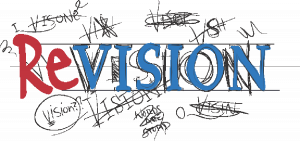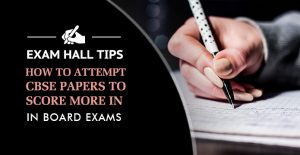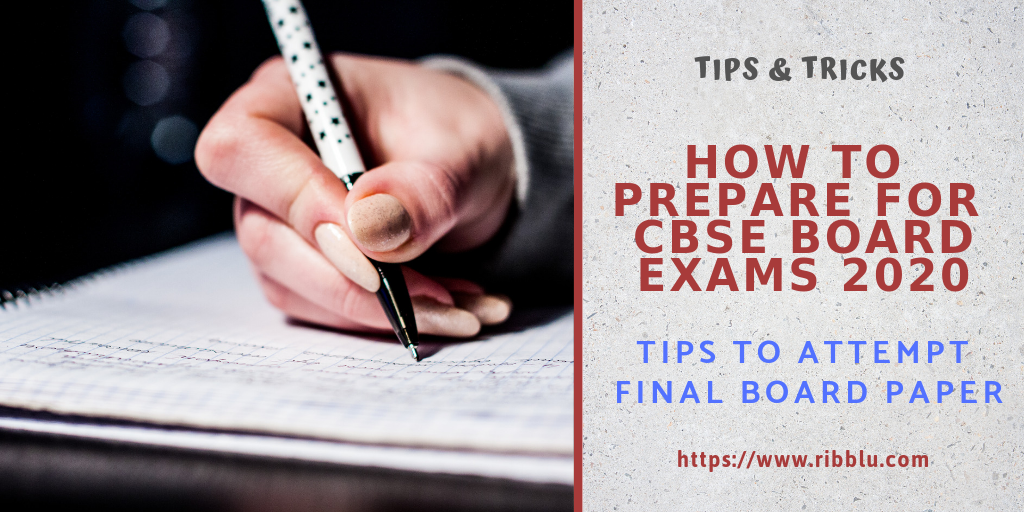Students of class 12th have a whole lot of pressure not only from their families but also from schools. And due to the added self expectations of a student , there is an increase in stress, anxiety, and self doubts. All this results in students committing silly mistakes which have a huge impact on their final result. Those who understand stress management and handle it successfully are the ones who have their half of their problems solved. This is because once a student has a stress free mind and environment, he/she is able to clear and prioritize subjects rationally. Here are few tips for the students to clear their 12th boards with flying colours.
Hard work is important, but Smart work is equally important.

Many students forget to understand that although it is important and crucial to get a hold on the full syllabus, it is equally important to find out your strengths, weaknesses and work on those separately. All the subjects do not need to be handled similarly. The subjects which are your strengths should be refined and the ones which are your weakness should be converted into strengths. But one should make sure that concentrating too much on the weaknesses also leads to a shortage of time for the other subjects.
DON’T BE OVERCONFIDENT about the subject that is your forte.

The subject is easy for you because you are clear with the concepts. But it still needs a good level of practice, because only knowing the answers is not going to fetch you marks, answering them within a time limit is the main key which only comes with constant practice.
Start Solving Question Papers Two Months Prior to Exams

You should start solving previous year cbse board papers and sample papers by setting the time limits, at least 2 months before the board exams. Set a timer that helps you to keep a track of the time that you are spending on each question. This way it would be easier to analyse your progress speed and levels.
Also you have to make sure that you solve at least 10-15 full papers for each subject. Initially, when you syllabus isn’t over, it’s of no use to solve full question paper, solve questions that you know and set a time limit for each question individually. Later on, once your syllabus is completed start solving full papers.
Time Management is a Must

CBSE papers are not all about the difficulty level, it’s also about time management. Practicing a full paper is important to train your mind to quickly and smoothly switch between different questions on different topics. If you are not solving full papers, you may get the answers, but getting time managed can be an issue. If you take time in switching between the questions and the topics, you have high chances of not being able to complete the whole paper. Therefore it is important to train your mind in switching between questions ASAP.
It’s completely okay if you don’t complete the paper on time in your first practice paper. Do not feel under-confident. Rather you are now able to quantify your progress and the level. You would be able to understand that which subject needs more attention, or which is a particular topic that you need to work on.
Revision is the Key to Success in Exams

The most important thing for theory subjects is how to remember everything and not getting blank during the exam. And the solution to this situation lies in your way of revision. It’s important to feed information in your mind in order to excel in any subject or exam. But what is more important is how to remember the information. And there is a simple solution to this complex question. While we learn any information we train our mind to feed it with the same. But the biggest challenge comes when we sit in the exam hall and have to write the answers. This problem occurs due to the lack of training given to the mind for “recollecting” the information. That is where revision plays a big role.
Now the question arises how to revise?
- The most productive way to revise is “DO NOT SKIM AND SCAN THE ANSWERS BEFORE APPEARING FOR EXAM”.
- Rather what’s needed is trying to REMEMBER the answer. After studying one topic, make sure that you first try and recollect what you have learned before starting a new topic.
- Do this every time. The more you try recollecting the information, the more quickly it comes to you during the exam time. This is because you are training your mind to recollect and retain the information.
- It’s completely okay if you only remember 50% or even less information in the first attempt while you try to recollect the topic you had studied for the first time. And if that happens, you need to turn the pages and learn it again. Only then should you proceed with the next topic.
- Then on the next day revise, the topic you learned first and the new topic you learned a day before. Continue revising each topic until you are certain that even after recollecting for at least twice or thrice, you remember each detail clearly.
Few techniques of attempting final paper in Board Exam

- While appearing for the paper in the exam hall, it would be a better option to attempt your papers backwards,from last question towards first. This would prevent you from losing the higher marker questions if in case the paper is lengthy.One more reason to attempt higher marker questions first is that, due to the shortage of time in a lengthy paper, it would be highly difficult to attempt them in the last. This would cause a panic and may even result in poor performance. Leaving one marker questions for the last not only makes it is easy to attempt, but also doesn’t cause any stress. And you would be only able to attempt a question with full potential when you are stress-free.
- While answering the paper, make sure that you write the answer in points and not in long paragraphs. This would make it easy for the examiner to check the paper and create a good impression. Also if you have time, you can underline the important points with either the same ink or use a different one, according to your choice. But make sure that you don’t lose time while spending too much on the underlining and highlighting. Leave it for the last to be on a safer side.
- Now let’s discuss the time when you are in the exam hall. Are you aware of the most crucial minutes ? Yes , It’s those 15 minutes reading time! Those 15 minutes are the precious moments that decide the next 3 hours of your exam time. This time is provided to you in order to have a look at the paper. But only doing so isn’t enough. You should be able to decide the questions that you would be attempting in the first and the ones that you keep for the last. These are those 15 minutes in which you have to decide which question you want to choose from the ORs. You should first attempt only those questions that you are confident about. Only once you are finished with those, should you touch the not-so-sure questions.
- Another important part of your exam time is learning what to write and what to leave. You should know how much to write in which question. The last questions carrying highest marks should be containing at least 6-7 points. Whereas those questions that carry lower marks should not be elaborated much, only the important points should be included.
- A case might arise that you are having more knowledge about a particular topic , but the question asked from the same carry less mark. In that case, you should carefully write only important relevant points of the topic that are required and avoid describing everything which might include unnecessary part also. Writing more than required would not fetch you marks, but only cost you your time.
- DO NOT LEAVE ANY QUESTION UNATTEMPTED! Do not skip any question. ALWAYS ATTEMPT ALL THE QUESTIONS IN THE PAPER.
- But remember, writing anything that is irrelevant and unrelated would never fetch you marks. If ever, you do not know that right answer, first of all, keep it for the last. Then make sure that you write everything that is relatable. DO NOT write anything that comes to your mind.
USEFUL EXAM PREPARATION MATERIAL
CBSE Sample Papers of Class 10
CBSE Sample Papers for Class 10 English
CBSE Sample Papers for Class 10 Hindi
CBSE Sample Papers for Class 10 Mathematics
CBSE Sample Papers for Class 10 Science
CBSE Sample Papers for Class 10 Social Science
CBSE Sample Papers for Class 10 Agriculture
CBSE Sample Papers of Class 11
CBSE Sample Papers for Class 11 Accountancy
CBSE Sample Papers for Class 11 Biology
CBSE Sample Papers for Class 11 Chemistry
CBSE Sample Papers for Class 11 Business Studies
CBSE Sample Papers for Class 11 Computer Science
CBSE Sample Papers for Class 11 Economics
CBSE Sample Papers for Class 11 English
CBSE Sample Papers for Class 11 Hindi
CBSE Sample Papers for Class 11 History
CBSE Sample Papers for Class 11 Home Science
CBSE Sample Papers for Class 11 Legal Studies
CBSE Sample Papers for Class 11 Mathematics
CBSE Sample Papers for Class 11 Paintings
CBSE Sample Papers for Class 11 Physical Education
CBSE Sample Papers for Class 11 Physics
CBSE Sample Papers for Class 11 Political Science
CBSE Sample Papers for Class 11 Sociology
CBSE Sample Papers for Class 11 Engineering Graphics
CBSE Sample Papers for Class 11 Psychology
CBSE Sample Papers for Class 11 Informatics Practices
CBSE Sample Papers of Class 12
CBSE Sample Papers for Class 12 Accountancy
CBSE Sample Papers for Class 12 Biology
CBSE Sample Papers for Class 12 Chemistry
CBSE Sample Papers for Class 12 Business Studies
CBSE Sample Papers for Class 12 Computer Science
CBSE Sample Papers for Class 12 Economics
CBSE Sample Papers for Class 12 English
CBSE Sample Papers for Class 12 Geography
CBSE Sample Papers for Class 12 Hindi
CBSE Sample Papers for Class 12 History
CBSE Sample Papers for Class 12 Mathematics
CBSE Sample Papers for Class 12 Physical Education
CBSE Sample Papers for Class 12 Physics
CBSE Sample Papers for Class 12 Political Science
CBSE Sample Papers for Class 12 Sanskrit
CBSE Sample Papers for Class 12 Sociology
CBSE Sample Papers for Class 12 Engineering Graphics
